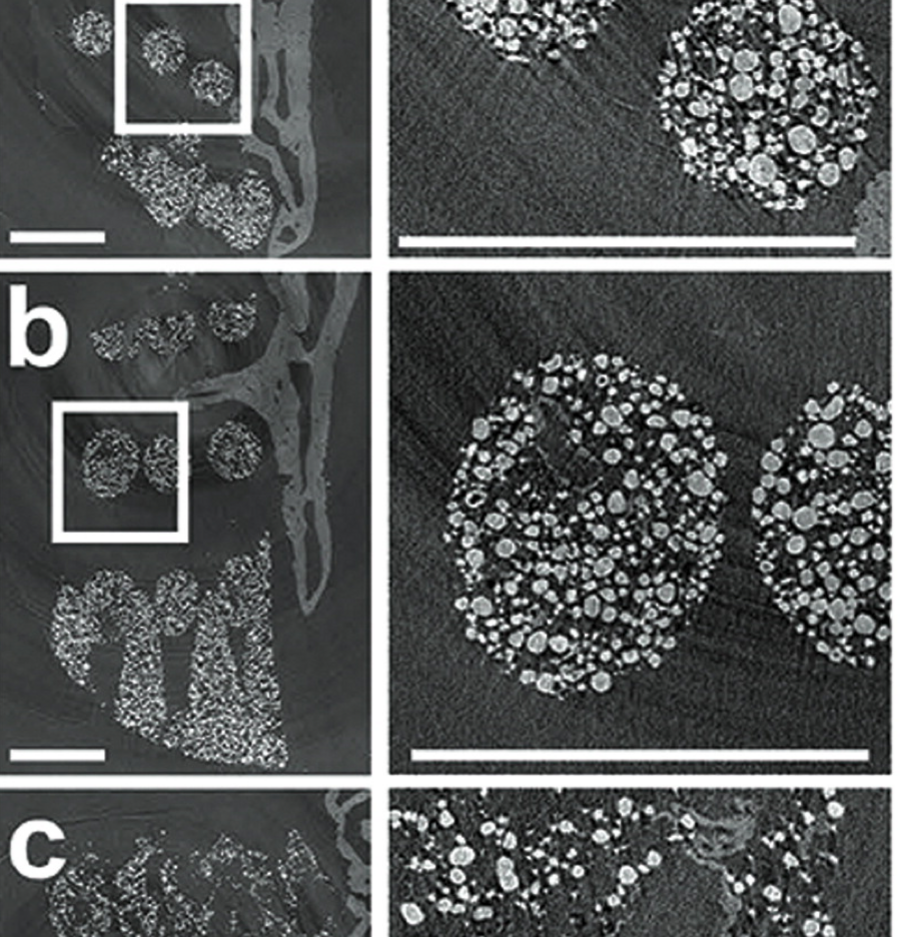About
A Northwestern University Laboratory
HSU Lab
The research team led by bone biologist, Erin Hsu, and orthopaedic surgeon, Wellington Hsu, focuses on developing novel biomaterials for bone regeneration. The approaches and technologies they utilize include stem cell-based therapies, nanotechnology-based synthetic matrices, and osteoinductive 3D-printable natural and synthetic materials.
Research Area
Regenerative Technologies
With a particular pre-clinical focus on spine, an overarching goal of the Hsu laboratory is to develop translatable technologies that promote bone regeneration and spinal fusion more efficiently and safely than current clinically available products. In this endeavor, the Hsu group collaborates with a number of materials scientists and engineers. Some specific approaches include:
-
The pursuit of bioactive self-assembling peptide amphiphile nanofiber matrices to deliver ultra-low dose growth factor or enhance the efficacy of low-volume autograft bone in pre-clinical spine fusion models.
-
Exploring the utility of nanofiber matrices in the delivery of bone marrow aspirate and mesenchymal stem cells for improved bone healing
-
The development of 3D-printed hyperelastic composite scaffolds for bone regeneration
-
The use of soft conducting polymers to enhance the osteoregenerative response
-
The development of 3D-printed piezoelectric implants for bone regeneration
-
The use of soft conducting polymers to enhance the osteoregenerative response
Research Area
Bone Toxicology
The Hsu lab also explores the inhibitory mechanisms of action of environmental chemicals (e.g. cigarette smoke and other toxins) on bone. These studies leverage novel mechanistic discoveries to develop better therapeutic approaches to mitigate such effects, including the development and validation of multi-functional materials to simultaneously promote bone formation and protect against chemical insult at the site of bone healing.
